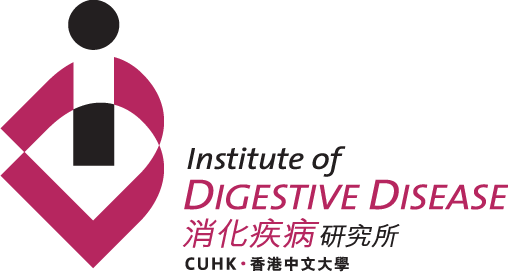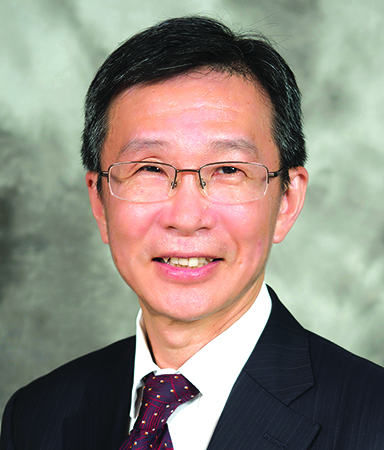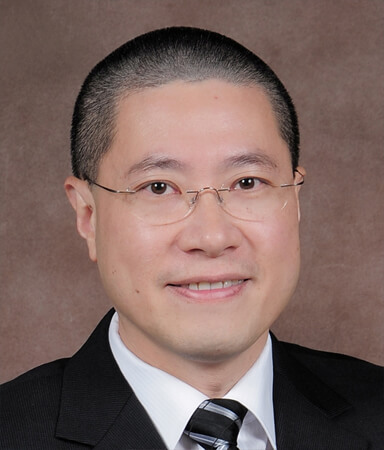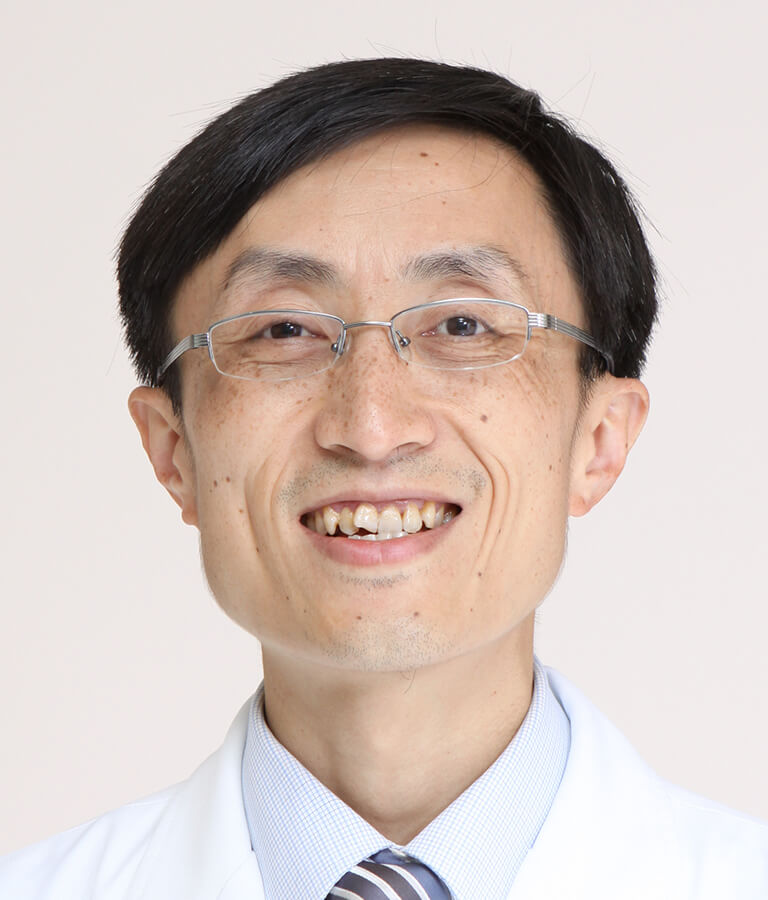Digestive diseases require treatments through a multidisciplinary approach. This groundbreaking master programme combines the expertise of different specialists to deliver an unrivaled multidisciplinary medical education. You will gain insights into management strategies for gastrointestinal and liver cancers from a spectrum of specialties:
MULTIDISCIPLINARY APPROACH
Gastroenterology
Hepatololgy
Surgery
Radiology
Pharmacology
Endoscopy
Psychiatry
Nutrition
Dietetics
Gastroenterology
Hepatololgy
Surgery
Radiology
Pharmacology
Endoscopy
Psychiatry
Nutrition
Dietetics
As a result, you will have comprehensive knowledge in the principles in gastroenterology and an in depth understanding of various digestive diseases.
Relevant Courses
GAST5002 - Interventions and Pharmacology in Gastroenterology (2 Units)
Topics
Course Aims
- To illustrate the role on therapeutic endoscopy.
- To understand the basic principles of gastrointestinal and hepatobiliary surgery.
- To illustrate the role of minimally invasive interventional radiology on treatment of gastrointestinal and hepatobiliary disorders.
- To provide an overview of interventional radiology in gastrointestinal and hepatobiliary disorders.
- To provide knowledge on the clinical pharmacology in gastrointestinal and hepatobiliary disorders.
GAST5003 - Nutrition and Dietetics (1 Unit)
Topics
Course Aims
- To provide basic knowledge on the physiology from absorption to metabolism of nutrients.
- To provide an overview on food and nutrition.
- To establish foundation knowledge for nutrition intervention in different disease groups.
GAST5005 - Liver, Hepatobiliary, and Pancreatic diseases (1.5 Units)
Topics
Course Aims
- To understand the basic pathologies of hepatitis, hepato-biliary and pancreatic diseases.
- To understand the common clinical presentations of different liver parenchymal, hepato-biliary and pancreatic conditions using a multidisciplinary approach.
- To illustrate with clinical examples the clinical management of viral hepatitis, common hepato-biliary and pancreatic condition.
- To provide an overview on office management of viral hepatitis, common hepato-biliary and pancreatic diseases.
GAST5007 - Psychological Intervention, Counseling and Complementary Medicine (1.5 Units)
Topics
Course Aims
- To introduce the concept of biopsychosocial model in development of functional gastrointestinal disorders.
- To provide an understanding on the relationship between psychological disorders and gastrointestinal diseases.
- To provide an overview of the role of psychological intervention and psychotropic therapy in management of functional gastrointestinal disorders.
- To provide basic training on the clinical skills of diagnosis and management of patients with functional gastrointestinal and psychological disorders.
- To provide an understanding on the role of complementary and alternative medicine in management of digestive diseases.
GAST5008 - Interactive Workshops - Practical Management of Common GI Diseases (1 Unit)
Topics
Course Aims
- To understand about the management of common GI diseases through interactive based learning.
- To illustrate the management of common GI diseases through case discussion.
- To learn the differential diagnosis and management of common GI diseases through sessions of interactive quiz.
- To understand and expose to various devices for investigation of common GI diseases through hands-on sessions.
GAST5002 - Interventions and Pharmacology in Gastroenterology (2 Units)
Topics
Course Aims
- To illustrate the role on therapeutic endoscopy.
- To understand the basic principles of gastrointestinal and hepatobiliary surgery.
- To illustrate the role of minimally invasive interventional radiology on treatment of gastrointestinal and hepatobiliary disorders.
- To provide an overview of interventional radiology in gastrointestinal and hepatobiliary disorders.
- To provide knowledge on the clinical pharmacology in gastrointestinal and hepatobiliary disorders.
GAST5003 - Nutrition and Dietetics (1 Unit)
Topics
Course Aims
- To provide basic knowledge on the physiology from absorption to metabolism of nutrients.
- To provide an overview on food and nutrition.
- To establish foundation knowledge for nutrition intervention in different disease groups.
GAST5005 - Liver, Hepatobiliary, and Pancreatic diseases (1.5 Units)
Topics
Course Aims
- To understand the basic pathologies of hepatitis, hepato-biliary and pancreatic diseases.
- To understand the common clinical presentations of different liver parenchymal, hepato-biliary and pancreatic conditions using a multidisciplinary approach.
- To illustrate with clinical examples the clinical management of viral hepatitis, common hepato-biliary and pancreatic condition.
- To provide an overview on office management of viral hepatitis, common hepato-biliary and pancreatic diseases.
GAST5007 - Psychological Intervention, Counseling and Complementary Medicine (1.5 Units)
Topics
Course Aims
- To introduce the concept of biopsychosocial model in development of functional gastrointestinal disorders.
- To provide an understanding on the relationship between psychological disorders and gastrointestinal diseases.
- To provide an overview of the role of psychological intervention and psychotropic therapy in management of functional gastrointestinal disorders.
- To provide basic training on the clinical skills of diagnosis and management of patients with functional gastrointestinal and psychological disorders.
- To provide an understanding on the role of complementary and alternative medicine in management of digestive diseases.
GAST5008 - Interactive Workshops - Practical Management of Common GI Diseases (1 Unit)
Topics
Course Aims
- To understand about the management of common GI diseases through interactive based learning.
- To illustrate the management of common GI diseases through case discussion.
- To learn the differential diagnosis and management of common GI diseases through sessions of interactive quiz.
- To understand and expose to various devices for investigation of common GI diseases through hands-on sessions.
EVALUATIVE AND CRITICAL THINKING SKILLS TRAINING

In the era of information supernova, evaluative skills are crucial in sorting relevant and useful information in an unbiased manner. It is especially imperative for medical professionals who navigate through volumes of medical literature, to possess critical thinking skills. Our programme is designed to equip you with cutting-edge research methodologies, medical statistics and clinical practices. Our distinguished faculty will guide you through an exciting tour in the world of clinical research in gastroenterology.
Relevant Courses
GAST5017 - Epidemiology and Clinical Research (3 Units)
Topics
Course Aims
- To describe the basic epidemiological theories and the methods of clinical investigation for scientific research.
- To educate the statistical concepts and data analysis methods for clinical and health economic research.
- To demonstrate the real scenarios of academic research in digestive disease.
- To demonstrate the procedures of data handling and statistical analysis in SPSS.
- To provide a practical experience of using SPSS.
- To provide basic knowledge and skills on how to read and critically apraise a scientific publication.
- To introduce the theoretical issues and approaches to scientific research.
- To equip the students with the skills of research planning, protocol writing, and ethics consideration in digestive diseases.
- To coach for the literature reviews of clinical evidence from academic databases, and the skills of critical appraisal for the existing evidence.
GAST5016 - Project and Dissertation (7 Units)
Course Aims
- To develop the skills of addressing a clinical problem in a scientific and systematic approach. Through supervised clinical research, students can develop the ability to understand and criticize the evidence in the literature.
EVALUATIVE AND CRITICAL THINKING SKILLS TRAINING

In the era of information supernova, evaluative skills are crucial in sorting relevant and useful information in an unbiased manner. It is especially imperative for medical professionals who navigate through volumes of medical literature, to possess critical thinking skills. Our programme is designed to equip you with cutting-edge research methodologies, medical statistics and clinical practices. Our distinguished faculty will guide you through an exciting tour in the world of clinical research in gastroenterology.
Relevant Courses
GAST5017 - Epidemiology and Clinical Research (3 Units)
Topics
Course Aims
- To describe the basic epidemiological theories and the methods of clinical investigation for scientific research.
- To educate the statistical concepts and data analysis methods for clinical and health economic research.
- To demonstrate the real scenarios of academic research in digestive disease.
- To demonstrate the procedures of data handling and statistical analysis in SPSS.
- To provide a practical experience of using SPSS.
- To provide basic knowledge and skills on how to read and critically apraise a scientific publication.
- To introduce the theoretical issues and approaches to scientific research.
- To equip the students with the skills of research planning, protocol writing, and ethics consideration in digestive diseases.
- To coach for the literature reviews of clinical evidence from academic databases, and the skills of critical appraisal for the existing evidence.
GAST5016 - Project and Dissertation (7 Units)
Course Aims
- To develop the skills of addressing a clinical problem in a scientific and systematic approach. Through supervised clinical research, students can develop the ability to understand and criticize the evidence in the literature.
LEADERSHIP DEVELOPMENT
Strong leadership skills are a critical asset in today’s job market. To distinguish yourself as a leading medical practitioner, you must be able to provide the best patient care and to lead a team and manage its operation. Healthcare professionals face challenges such as finding the balance between financial responsibilities, human resource demands and competitive constrains with the patient care mission of their organizations.
The Master of Science in Gastroenterology programme prepares you for these daunting challenges. Some courses specifically cover all aspects required in healthcare management. Our lecturer panel is comprised of senior managers in healthcare policy, experienced human resource managers and training consultants. They discuss the clinical and everyday issues encountered in healthcare organizations. Selected topics of discussions cover problem solving skills, complaint management, crisis management and strategic planning. Advanced management techniques can help you establish an outstanding portfolio for your career advancement.

PROFESSOR FUNG HONG
Executive Director and
Chief Executive Officer,
CUHK Medical Centre
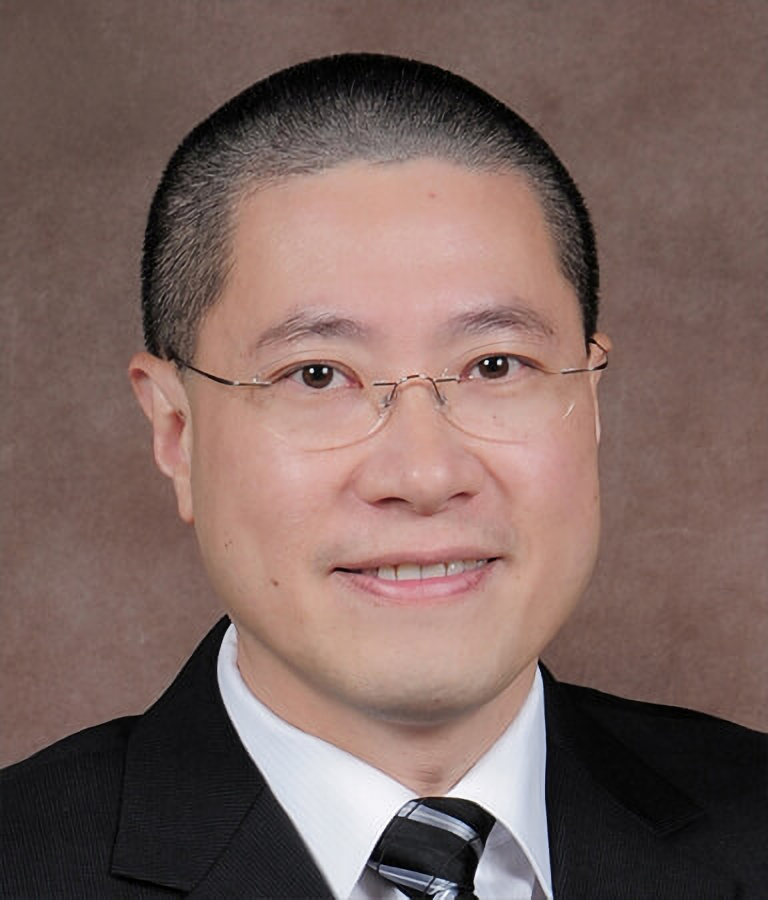
PROFESSOR PAUL BO-SAN LAI
Professor and Division Chief,
Division of Hepato-biliary and Pancreatic Surgery,
Department of Surgery, CUHK

DR SIN NGAI CHUEN
Chief Manager
(Patient Safety & Risk Management),
Quality & Safety Division,
Hospital Authority Head Office

DR DAVID DAI
Clinical Director,
Healthcare for the Senior,
Qualigenics
Relevant Courses
GAST5010 - Health Service Management & Healthcare Administration (1 Unit)
Topics
Course Aims
- To provide basic knowledge on the administrative set-up of a hospital.
- To provide understanding in clinical governance, risk management, standard of care, health informatics and ethics in healthcare management.
- To educate the managerial and administrative skills, leadership and decision making as a healthcare manager.
GAST5011 - Professional Communication Workshop (1.5 Units)
Topics
Course Aims
- To illustrate how to coordinate a multidisciplinary team in managing patients with digestive disease.
- To illustrate how to communicate with patients and their family members.
- To illustrate how to deal with PR crisis and how to communicate with journalists.
UNPARALLELED NETWORK
As a student of the Master of Science in Gastroenterology, you will be invited to exclusive, world-class medical conferences such as the institute’s signature event, the International Digestive Disease Forum (IDDF), the Practical Workshop in Diagnostic and Therapeutic Endoscopy. At these large events, you will meet intelligent young investigators, top scholars and some of the industry’s most important influencers. A great way to introduce yourself to people who matter in the field and expand your professional network. The unparallelled networking opportunities you get from IDD will place you in the right place, the right time, with the right people—key factors to launching or advancing your career!
Our programme attracts students from various countries and professional backgrounds. Enrolled in our programme, you will have easy access to professionals within your specialty and from a diverse field of specialties. You will be stimulated by innovative ideas and be inspired by an ongoing exchange of knowledge at an institution with a global reputation for achievement. You will find yourself in a vibrant educational community that looks outward to engage with the best.
